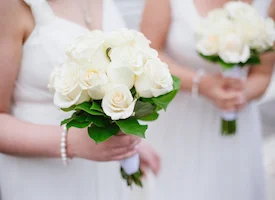Puedes incursionar en las bodas gay o bodas igualitarias tanto si eres un hotel o locación que ya hace bodas, si eres wedding planner, decorador, diseñador floral, si tienes una orquesta o eres experto en entretenimiento para bodas, si tienes una casa de banquetes o de moda nupcial, si eres fotógrafo o si provees servicios que le hace más fácil la vida a todas las parejas en sus bodas.
Realmente cualquiera puede incursionar en las bodas gay o bodas igualitarias, pero si quieres razones concretas, aquí te dejamos 3:
1.- Diferénciate de los demás y haz algo que lo demás no están haciendo: las bodas igualitarias jamás le ganarán en número a las bodas tradicionales, pero cada vez hay más gente que apoya el matrimonio igualitario y ve con buenos ojos a los profesionales y empresas que diseñan servicios específicos para la comunidad LGBT. La sociedad está cambiando, nadie quiere hacer negocios con empresas o personas que denigren a otros o que no sean tolerantes con los demás. Si por el contrario, empiezas a hacer bodas diferentes, el público que ya tienes cautivo empezará a notar qué estás haciendo algo diferente, nuevo e innovador y ganaras otro sector qué le interesan las bodas igualitarias.
2.- Hacer bodas igualitarias te pone en el radar no sólo de la comunidad LGBT: sino en la de todas las personas que quieren hacer negocios con empresas responsables, abiertas y progresistas. Los últimos sondeos de opinión coinciden en qué las personas son más leales a las marcas y negocios que son incluyentes que atienden de forma excelente a todas las personas, el mundo se está haciendo cada vez más plural y solidario, también lo debe ser tu negocio.
3.- La competencia se está desbordando: cada vez hay más oferta de servicios para bodas que parecen ser “soluciones mágicas” para todos los tipos de pareja, pero tú sabes que no es cierto, la especialización y atender sólo a ciertos nichos de mercado es la única manera de enfocar nuestros esfuerzos, controlar nuestros gastos, optimizar los esfuerzos de publicidad y promoción y crear una verdadera experiencia para parejas que estén dispuestas a obtener tus servicios al precio en qué lo ofreces. Los negocios “unitalla” son cosa del pasado, si diseñas servicios para ciertos grupos muy definidos de clientes, como las parejas lésbico gay, te da una dirección clara del negocio y de lo que debes hacer para tenerlos de tu lado.

